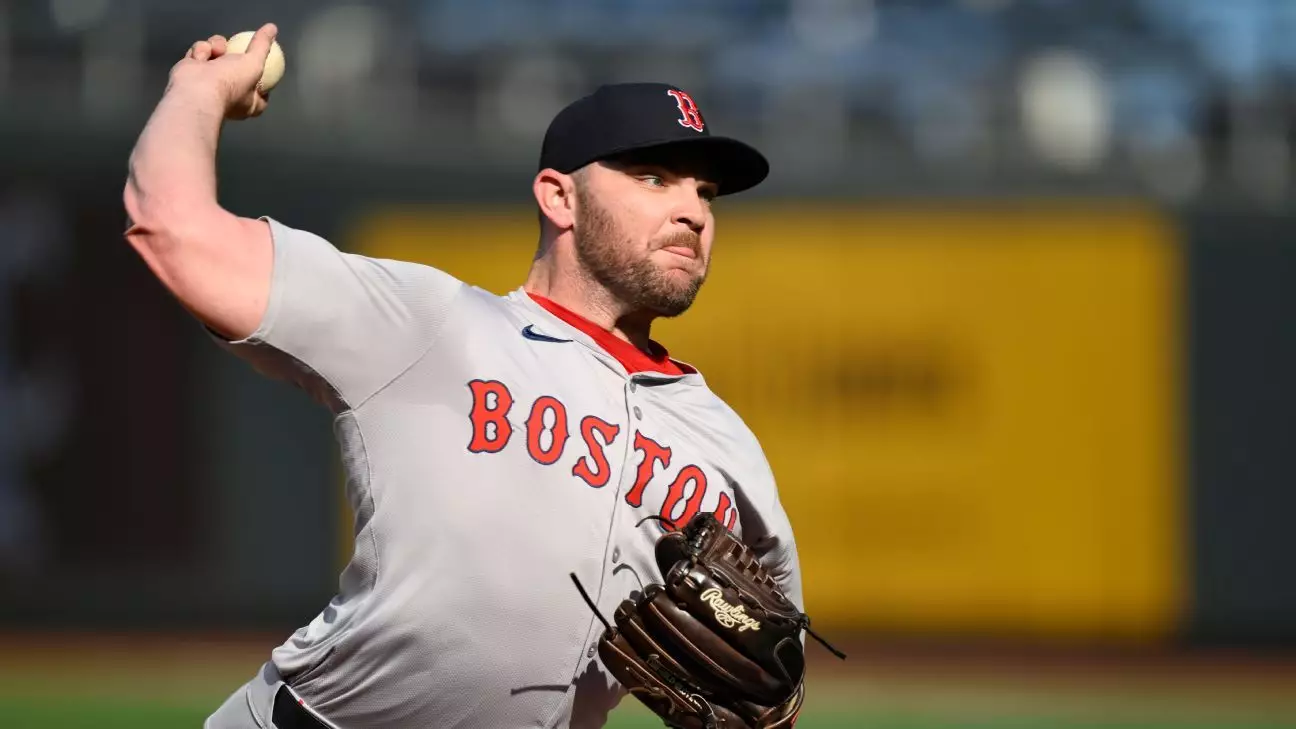In the age of social media, the illusion of anonymity empowers individuals to express their outrage in the most monstrous of ways. The recent outcry led by Boston Red Sox reliever Liam Hendriks illustrates just how vile this phenomenon has become. Faced with death threats directed not only at him but also at his family, Hendriks’s heart-wrenching revelations underscore a chilling reality: that while athletes exist in a public sphere, their vulnerability remains masked by the celebrity status that society demands. Manager Alex Cora’s empathy reflects a deeper truth—it is not just the players who suffer under the weight of public scrutiny; their families bear the brunt of it too.
This begs the question: how have we allowed a structure to emerge that renders athletes public punching bags, while their families are ensnared in this relentless cycle of outrage? It is time we recognized that our incessant need for drama in the sports realm can lead to toxic consequences, and we must hold ourselves accountable.
Virtual Venom: The Consequences of Anonymity
The reality depicted by Hendriks is not an anomaly; it serves as a grim reminder of this distorted society that permits the voice of the angry masses to drown out reason and empathy. Cora articulated this very sentiment when he remarked on the dual nature of online criticism: it often stems from both genuine fans and faceless trolls. The realm of social media bursts forth with cacophonous opinions that seem to ignore morality entirely, giving rise to fake accounts that thrive on chaos while obscuring any sense of personal responsibility or consequence.
The real tragedy lies in the sheer audacity of these internet warriors who would lash out excessively without regard for the human being behind the jersey. Whether or not you believe an athlete deserves your ire for a blown play, it is simply unacceptable to cross that unforgivable line into threats—dehumanizing individuals who have dedicated their lives to performing in the spotlight. As we channel our collective frustrations into social media exchanges, do we ever pause to consider the psychological toll inflicted not only on these players but also on their loved ones?
Personal Battles Beyond the Field
Hendriks’s own journey is a poignant reminder that athletes too carry the burdens of their personal lives. With a history that includes overcoming non-Hodgkin’s lymphoma and injuries that robbed him of vital playing time, Hendriks’s story is one of resilience that deserves acknowledgment, not vitriol. How can fans justify the vilification of someone who has battled against tremendous odds, only to face threats because of the outcome of a game?
Cora’s experience further amplifies this perspective. When he faced backlash for prioritizing his daughter’s graduation over a game, it demonstrated how skewed our societal values have become. The elder generation once honored family commitments even amidst sports obligations; now, it appears that loyalty to entertainment supersedes personal milestones. In what universe do we condemn a parent for sharing in a memorable life moment? Cora’s subsequent admission of fear regarding his family’s safety serves as a sobering wake-up call; we must confront the unsettling transformation of sports culture into an arena where not only the players but their loved ones live in fear.
Finding a Path Forward
It is high time we intervene in this dangerous dance between fandom and accountability. The catalyst for sustained change lies in how we interact with athletes and our recognition that they are human above all else. In a climate where sports gambling proliferates, driven fans often react impulsively, taking criticisms to a grotesque level where personal threats become the new norm.
Athletes deserve to feel safe—both on the field and off. Perhaps, as we navigate this changing terrain of sports culture, we can realign our values to emphasize empathy above outrage. Instead of weaponizing our disappointment, let’s channel our energies toward constructive conversations about the game. After all, sports should unite us, not tear apart the very souls behind the jerseys we cheer for. As we grapple with our collective conscience, let’s remember the societal lines we are often too eager to cross in the fervor of fandom.

